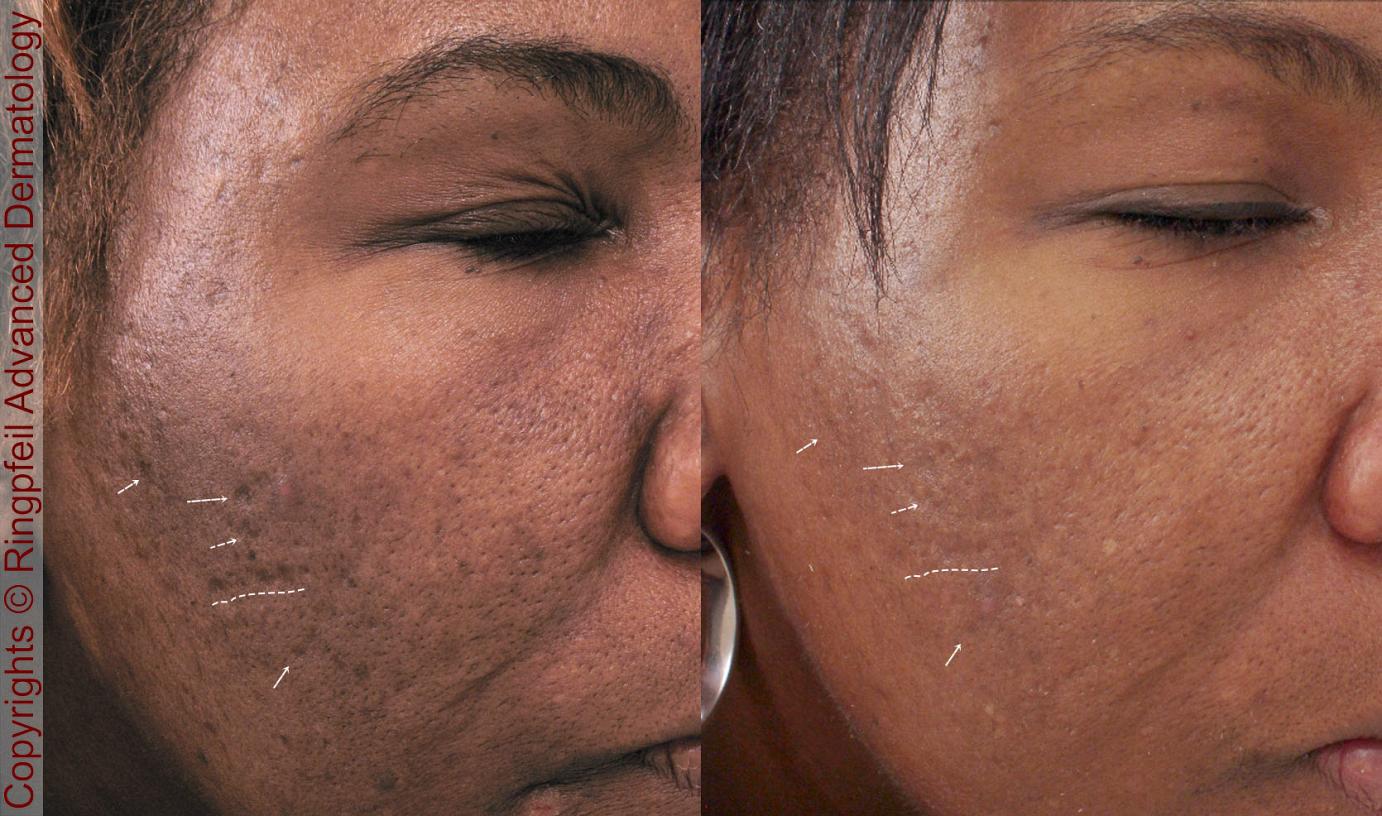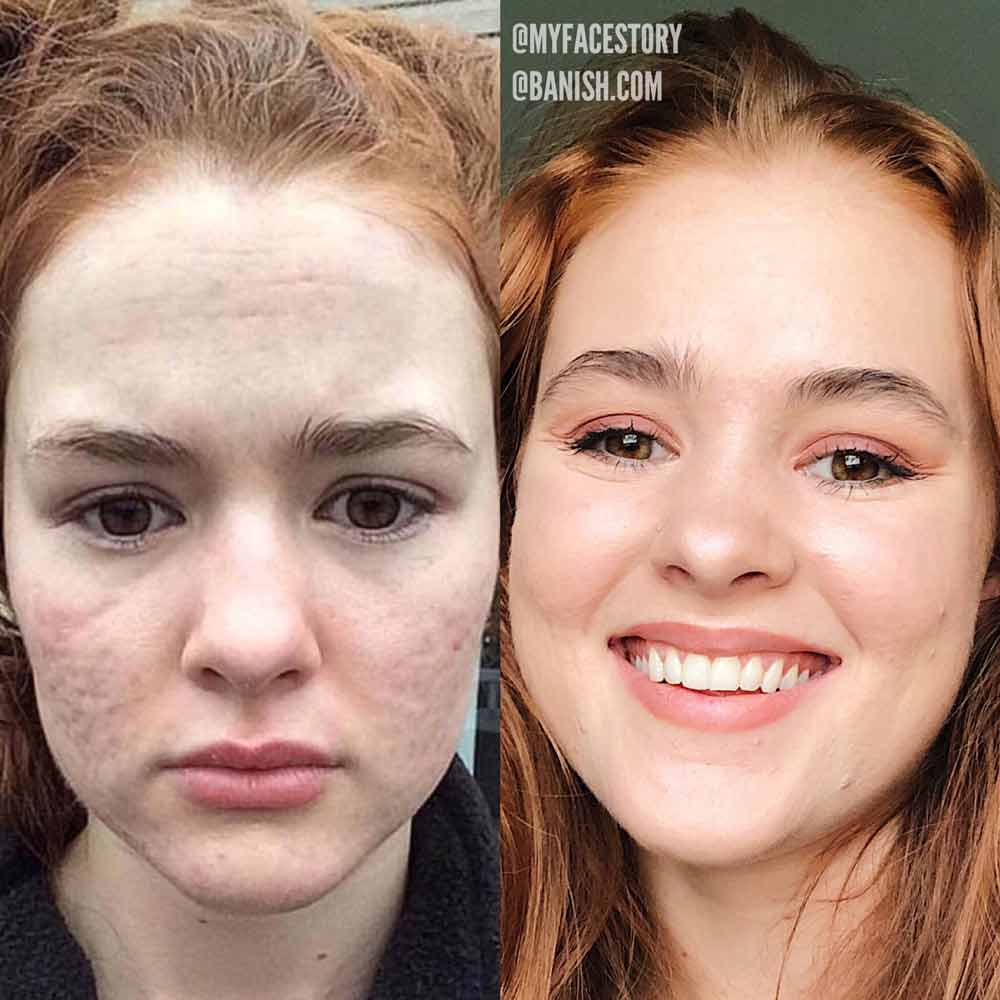Acne and Acne Scars Treatment: Change Your Skin with Proven Solutions
Acne and Acne Scars Treatment: Change Your Skin with Proven Solutions
Blog Article
Understanding the Various Skin Conditions and Efficient Treatment Choices for Acne Marks
Acne scars stand for an intricate interplay of skin problem that substantially influence individuals' self-worth and total skin wellness. Understanding the distinct types of acne marks-- atrophic and hypertrophic-- alongside their underlying reasons, is pivotal for determining effective treatment approaches. Different therapeutic options exist, ranging from sophisticated dermatological procedures to natural remedies. Nonetheless, the efficacy of these treatments usually hinges on customized analyses by certified experts. As we discover the landscape of acne scar administration, it ends up being evident that the journey toward more clear skin might entail greater than simply topical services.
Kinds Of Acne Marks
The 2 primary classifications of acne marks are hypertrophic and atrophic scars. These scars are additional identified into three subtypes: ice pick marks, which are slim and deep; boxcar scars, which are wider and have well-defined edges; and rolling scars, which produce a wave-like look due to irregular skin texture.
In contrast, hypertrophic scars arise from an overflow of collagen throughout the recovery procedure, causing elevated locations on the skin. These marks are frequently solid and can vary in shade, occasionally showing up red or darker than the bordering skin.

Root Causes Of Acne Scarring
Marking happens as an outcome of the body's natural healing action to inflammation and injury triggered by acne lesions. When acne types, it causes an inflammatory response, causing the launch of different cytokines and growth factors that advertise healing. This procedure can often lead to excessive cells formation or insufficient repair, resulting in scars.
The key causes of acne scarring consist of the severity of the acne itself, period of the lesions, and private skin kinds. Serious inflammatory acne, such as blemishes and cysts, is more probable to lead to scarring due to deeper cells damage. Furthermore, inappropriate handling of acne lesions, such as squeezing or choosing, can exacerbate tissue injury and swelling, increasing the chance of scarring.
Genetic tendency additionally plays a significant function; people with a family history of scarring are at a greater risk. Skin kind and shade can influence scar development, as darker skin tones might experience post-inflammatory hyperpigmentation, while lighter skin may establish atrophic marks.

Treatment Choices for Scarring
Efficient therapy alternatives for acne scarring differ relying on the kind and extent of the marks. Typically categorized into atrophic, hypertrophic, and keloid marks, these problems require tailored techniques for optimum outcomes.
For atrophic marks, which are identified by a loss of cells, therapies such as chemical peels, microdermabrasion, and laser treatment are generally utilized. These approaches advertise skin revival and promote collagen production, therefore boosting skin structure. Subcision, a minimally invasive treatment, can additionally be official website efficient by breaking up coarse bands under the skin.
Keloid and hypertrophic scars can be more testing to treat. Options consist of corticosteroid injections to reduce swelling and flatten the marks. acne and acne scars treatment. In many cases, cryotherapy or laser therapy may be advised to lessen their appearance
Surgical alternatives are offered for severe scarring, where excision or skin grafting might be required. It's important for people to seek advice from a dermatologist to analyze their certain scar kind and discuss one of the most appropriate therapy plan. Combining multiple treatments commonly yields the ideal end results, making sure that each client's one-of-a-kind skin disease is addressed successfully.
Natural Home Remedy and Natural Solutions
All-natural options and natural home remedy can offer an obtainable technique for individuals looking for to improve the appearance of acne scars. Different ingredients located in the home kitchen area have actually shown potential benefits in enhancing skin texture and advertising healing.
One popular treatment is aloe vera, understood for its soothing and anti-inflammatory buildings. Using fresh aloe vera gel directly onto the marks can help boost skin hydration and minimize inflammation. Honey possesses natural antibacterial and moisturizing top qualities that can assist in scar recovery. It can be utilized as a mask, left on for half an hour prior to rinsing off.
Another efficient option is lemon juice, which functions as a natural exfoliant and can lighten hyperpigmentation. Nevertheless, it must be utilized very carefully, as it might trigger photosensitivity. Oat meal masks are additionally useful; their mild exfoliation can help remove dead skin cells while calming inflammation.
Crucial oils, such as tea tree oil and lavender oil, can further sustain mark healing because of their antimicrobial properties. It is important to perform a spot test before using any solution to make certain there are no damaging responses. These all-natural services can be a complementary approach in the trip to decrease acne marks.
Protecting Against Future Scarring
Taking on an aggressive method to skin care can considerably lower the threat of developing future acne marks. Among the key techniques is to manage acne properly as it emerges (acne and acne scars treatment). This includes utilizing non-comedogenic skin care items and drugs prescribed by skin specialists that target acne without irritating the skin. Normal cleaning, peeling, and hydration can aid maintain skin health and prevent stopped up pores.
Furthermore, staying clear of the lure to select or squeeze acne sores is critical, as this can cause inflammation and succeeding scarring. Rather, people must concentrate on applying topical treatments that promote recovery and minimize inflammation. Active ingredients such as salicylic acid, benzoyl peroxide, and retinoids are known for their effectiveness in handling acne and minimizing marks.

Last but not least, keeping a healthy and balanced diet abundant in antioxidants and remaining hydrated page supports skin regrowth. By applying these safety nets, people can substantially decrease their risk of future scarring and advertise overall skin health and wellness.
Verdict
In verdict, a detailed understanding of acne marks, encompassing both hypertrophic and atrophic kinds, is crucial for efficient therapy techniques. Consultation with a skin specialist stays critical to develop personalized methods that take into consideration individual skin kinds and scar his explanation intensity, inevitably improving the effectiveness of scar monitoring techniques.
Acne scars stand for an intricate interaction of skin problems that dramatically effect individuals' self-worth and total skin health and wellness. The two key groups of acne scars are hypertrophic and atrophic marks. These marks are further categorized right into 3 subtypes: ice choice marks, which are slim and deep; boxcar marks, which are wider and have well-defined sides; and rolling marks, which develop a wave-like look due to uneven skin texture.
A thorough appointment with a dermatologist can assist figure out the most appropriate treatment, taking into account the individual's skin type, scar seriousness, and overall skin health.
Assessment with a dermatologist continues to be crucial to design personalized approaches that consider specific skin types and scar seriousness, ultimately boosting the effectiveness of mark monitoring strategies.
Report this page